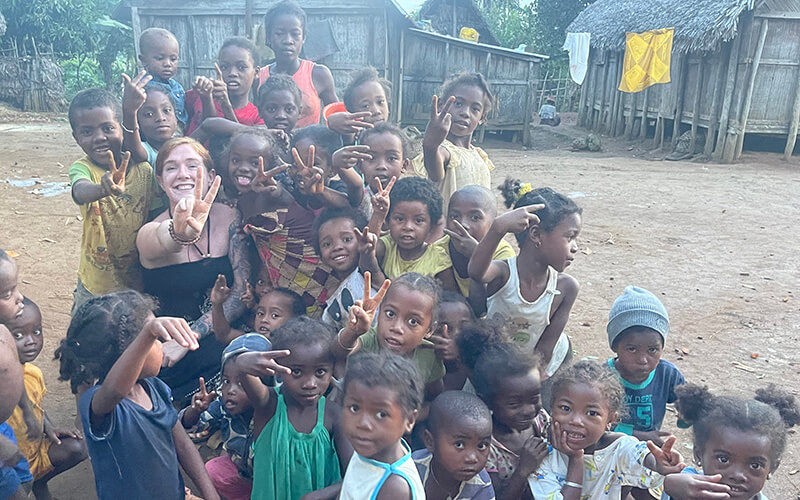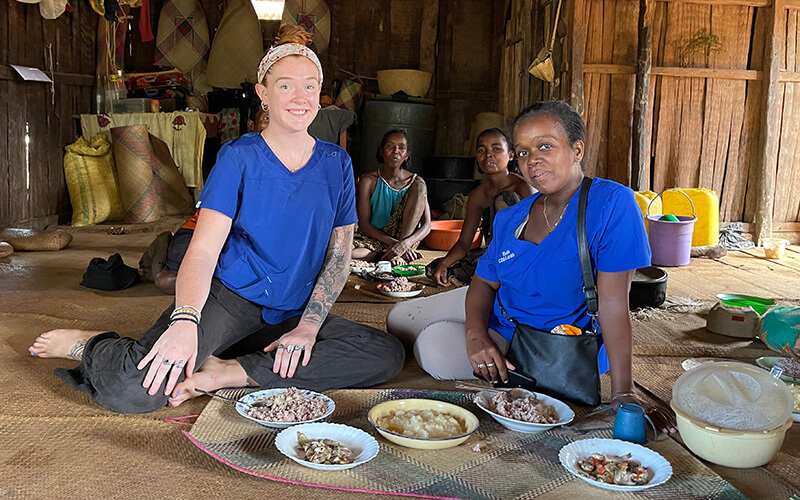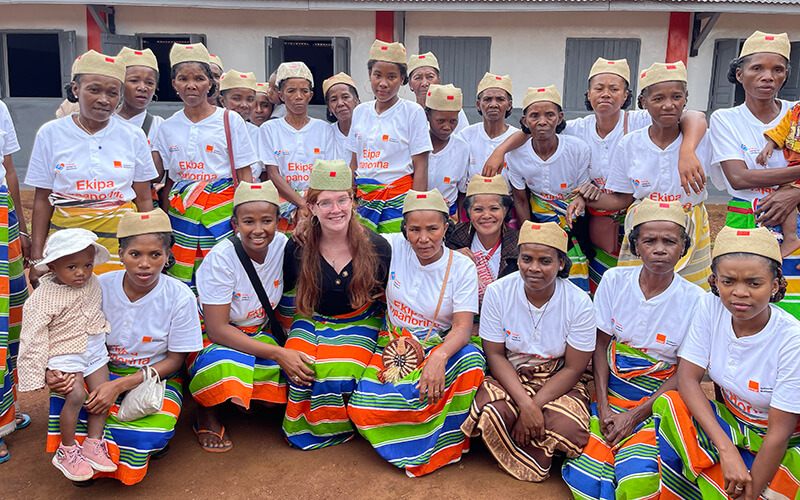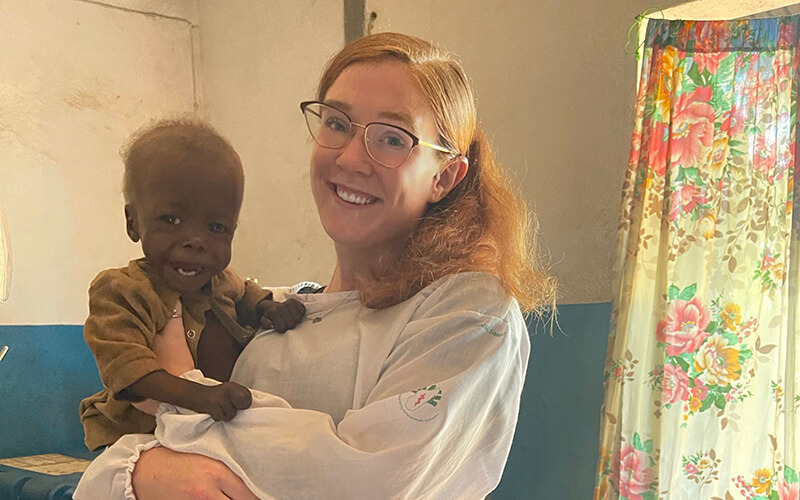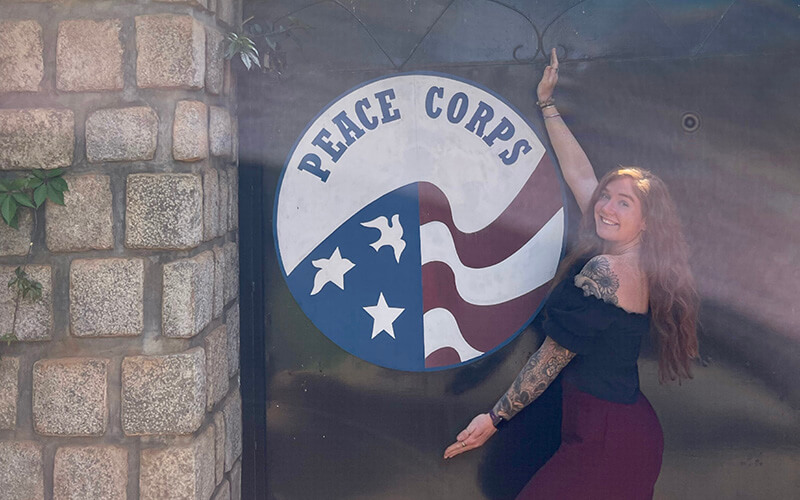Peace Symbol: UWG Alumna, Peace Corps Volunteer Making a Difference in MadagascarShare this page
As the first light of dawn caresses the horizon in the island nation of Madagascar, the sky blushes with pink and gold hues, casting a soft glow over the lush landscape. The baobab trees, ancient and majestic, stand silhouetted against the burgeoning light, their twisted branches reaching skyward as if in a silent prayer for humanity.
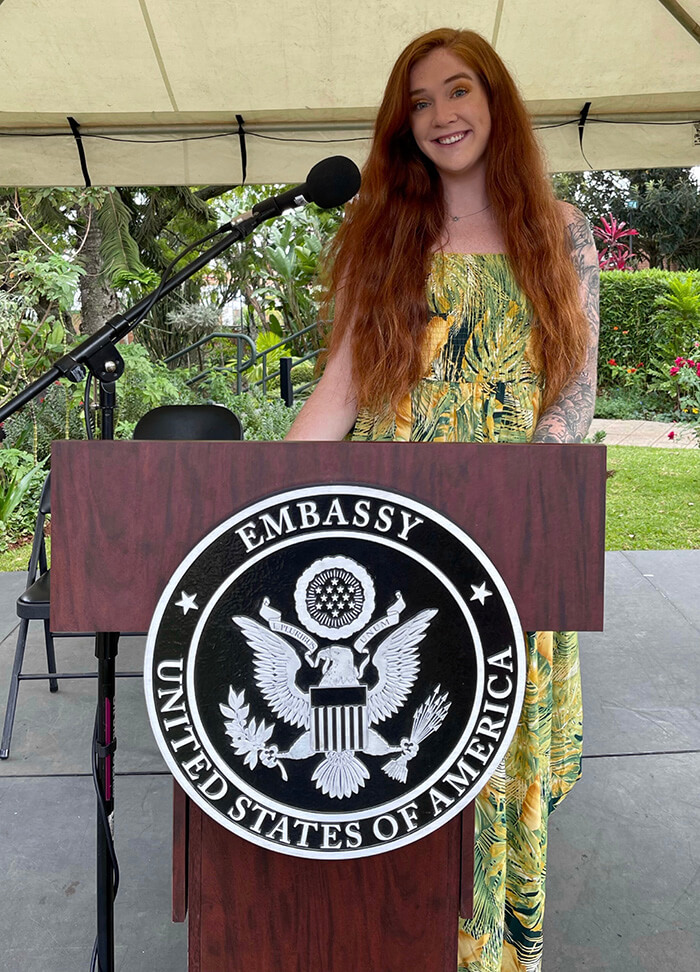
This is what greets Peace Corps volunteer MacKenzie Hafer each morning. A 2020 University of West Georgia alumna and anthropology graduate, humanity – whether it be from a cultural or physical lens – has always fascinated her.
“One of the most important principles in the field is cultural relativism, which means not judging another culture based on the standards of what is ‘normal’ within your own culture,” she explained. “What this means to me is waking up every day with an open heart and an open mind and experiencing the beautiful Malagasy culture for what it is and not anything it isn’t.”
Hafer has been in Madagascar since February 2023. An extremely diverse island where different areas are affected by different diseases and issues, the southeast – where Hafer lives – has some of the highest rates of poverty, malnutrition and malaria transmission.
As a community health advisor, Hafer works at the local rural medical facility where she tests people for malaria, weighs and measures babies, assists in childbirth, helps administer vaccines, and teaches about the importance of good hygiene. She also conducts monthly care groups with pregnant women and mothers of children under 5 about the food wheel and how to create nutritious meals through food preparation demonstrations with food that is readily available in the region.
Hafer mentioned that one of the most gratifying activities she participates in is accompanying doctors and nurses on vaccine walks deep into rural areas, sometimes walking four hours each way, to provide vaccinations to people who cannot make it to a medical facility. Another major highlight of her service was when she delivered a speech on World Malaria Day in front of hundreds of people, politicians and other non-governmental operations – completely in the Malagasy language.
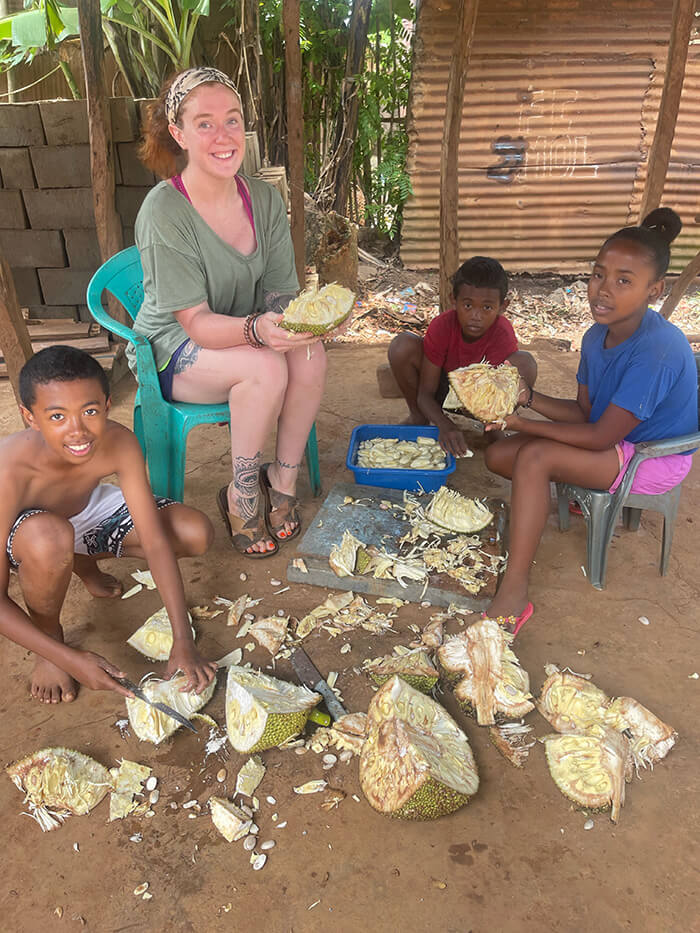
“When I go to work, I never know what the day will bring, which is a really fun part of my job,” Hafer explained. “One day, I can be at the medical facility delivering babies, and the next day, I’ll be walking many miles to distribute vaccines to neighboring villages. I chose the option to serve where I was needed most. I didn’t care what country I was placed in as long as I had the opportunity to help others.”
Hafer’s interest in anthropology and the study of what makes us human and the human experience was honed at UWG. She committed to playing soccer for the Wolves during her junior year of high school. Combined with the reputation of UWG’s Biological and Forensic Anthropology Laboratory (BAFAL), UWG was her first-choice university. The support from professors who encouraged her to turn an interest in the field into a discipline that is the foundation of her career – like BAFAL Director Dr. Corey Maggiano – was an added bonus.
“The experiences I had at BAFAL were among the highlights of my time at UWG,” Hafer recalled. “One day, we were doing field work and looking for bones that had been buried for us to find and identify, and much to my surprise – and Dr. Maggiano’s! – I discovered a deer bone that was not part of the investigation.”
What’s next for Hafer? She’s working on a small grant in partnership with the United States Agency for International Development to get solar power at the medical facility where she works. Right now, few women are coming to the facility to give birth at night because there’s no electricity. The grant will allow more women to give birth in a safe environment with trained professionals instead of doing so at home, where complications are more likely to occur.
“Anthropology has allowed me to better understand other cultures and see the beauty and complexity of humankind,” she concluded, adding that she plans to attend graduate school when her Peace Corps service is over. “I’d love to spend the rest of my life traveling and experiencing other cultures, hopefully working for an organization where I can continue to help others and do meaningful work.”

